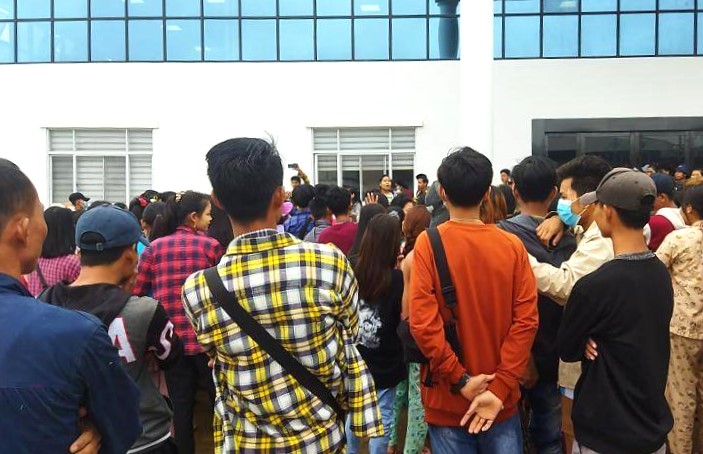Rallies, activist sessions, labor platforms, global gatherings and more—-during this year’s 16 Days of Violence Against Women, Solidarity Center’s diverse efforts around the world are all centered on the same goal: ratification and implementation of a treaty to end...
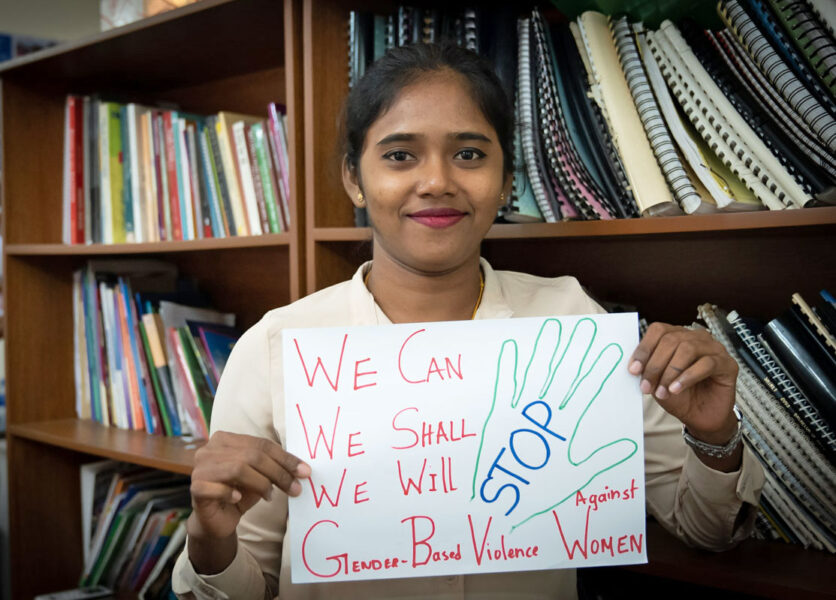
The Solidarity Center and worker rights organizations like the Lanka Eksath Jathika Workers Union in Sri Lanka advocated for a landmark global standard to eliminate gender-based violence and harassment at work and are pushing for its ratification by governments. Credit: Solidarity Center/Sean Stephen
The Solidarity Center prioritizes preventing and addressing gender-based violence and harassment in the world of work, recognizing it is a primary barrier to achieving gender equality and a key step for security of all workers’ rights. The Solidarity Center seeks to enhance the voice of women and other marginalized workers in policy making at the local, national, and international levels to reduce the risk of gender-based violence at work and build leadership, voice and direct participation of women and other marginalized workers and their unions.
Beginning in 2014, the Solidarity Center was a core member of a global coalition of worker rights organizations led by women union activists that successfully advocated for a landmark global standard (Convention 190) to eliminate violence and harassment in the world of work, including gender-based violence and harassment which was adopted by the International Labor Organization in June 2019. We support our partners as they campaign for their governments to ratify ILO Convention 190.
See related factsheets, videos and reports.
Myanmar Factory Workers Strike for Decent Wages, End to Abuse
Some 500 factory workers are on strike in Yangon, Myanmar, demanding a return to the job for colleagues who joined them in seeking decent wages and working hours and a workplace free from violence and abuse. Since the strike began in November, more than 50 workers...
Ratify ILOC19: Create A Safe World of Work Free from Violence and Harassment
Violence and harassment in the world of work is a persistent and significant challenge faced by workers worldwide. The ILO Violence and Harassment Convention, 2019 (No. 190) and its accompanying Recommendation (No. 206) clearly spell out the right of everyone to a...
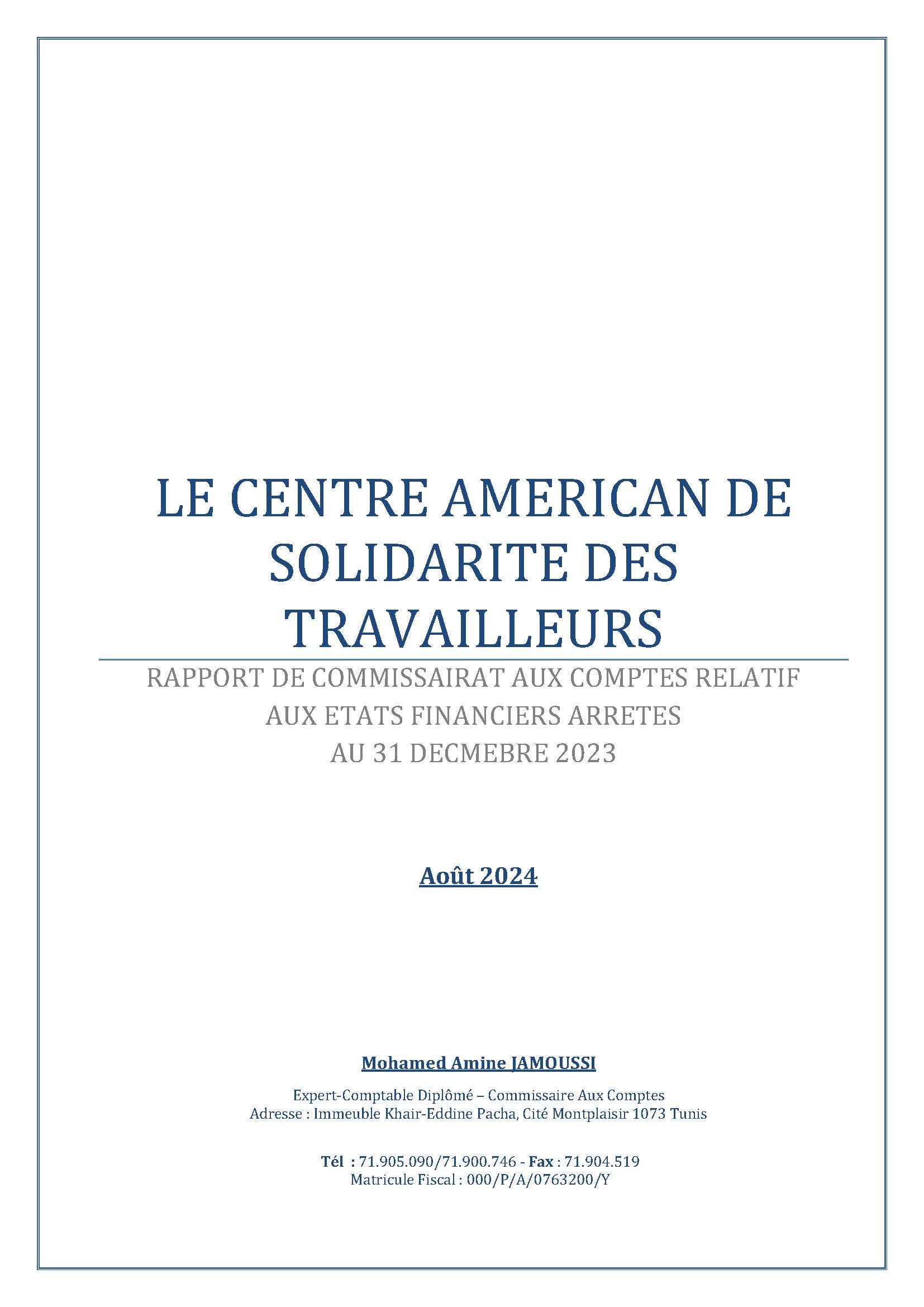
Rapport du Commissaire aux Compotes sur les Etats Financiers de L’Exercice Clos le 31 Decembre 2023
Read the full report here.

LOW PAY, NO SUPPORT: Sri Lanka Delivery Drivers Fight for Worker Rights
CLICK HERE TO READ THE FULL REPORT.

Heat Stress in the Cambodian Workplace
In Cambodia, workers health and safety and climate change are linked. This report details the results of surveys, interviews, and thermal monitoring conducted in the garment, delivery, and informal food sector that display the negative effect that heat has on workers,...
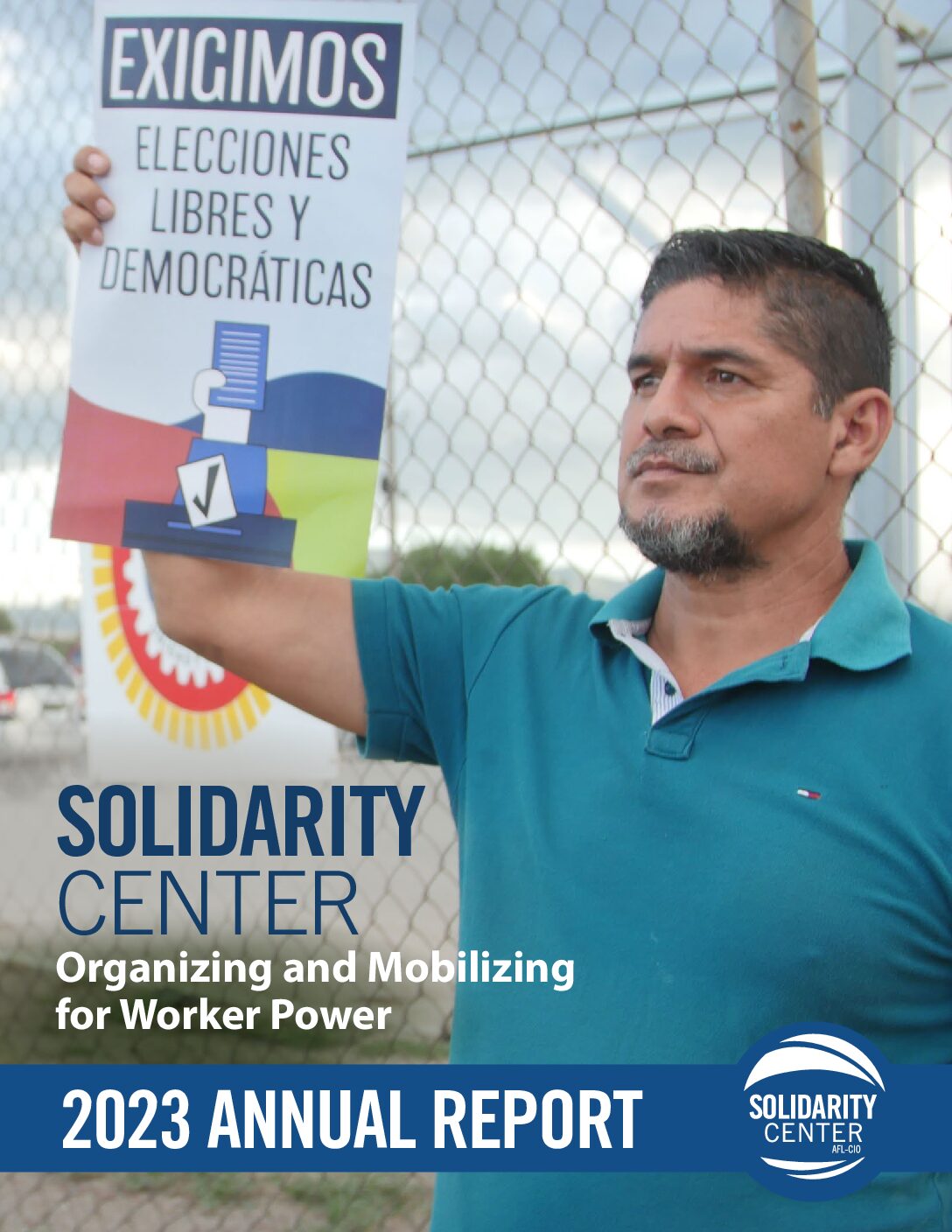
2023 Annual Report
In 2023, the Solidarity Center supported workers as they took on exploitative multinational companies and robot algorithms, demanded their governments tackle social ills and deliver on promises, and fought for justice in environments increasingly dangerous to those...
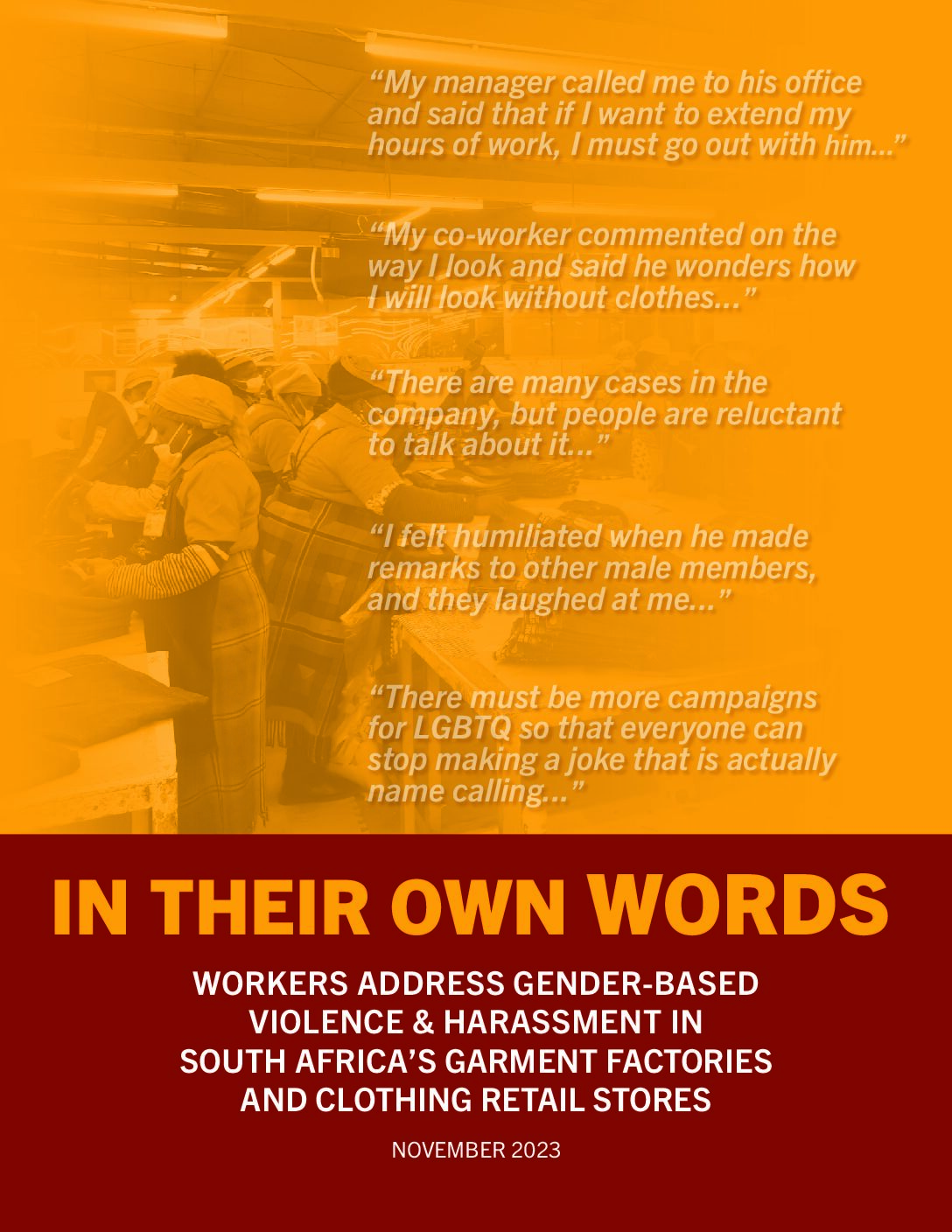
In Their Own Words: Workers Address Gender-Based Violence & Harassment in South Africa’s Garment Factories and Clothing Retail Stores
In South Africa, 98 percent of women garment and retail workers surveyed in 2022 said they had experienced one or more forms of gender-based violence or harassment, including physical abuse, unwanted sexual advances, psychological abuse, bullying and rape. To better...
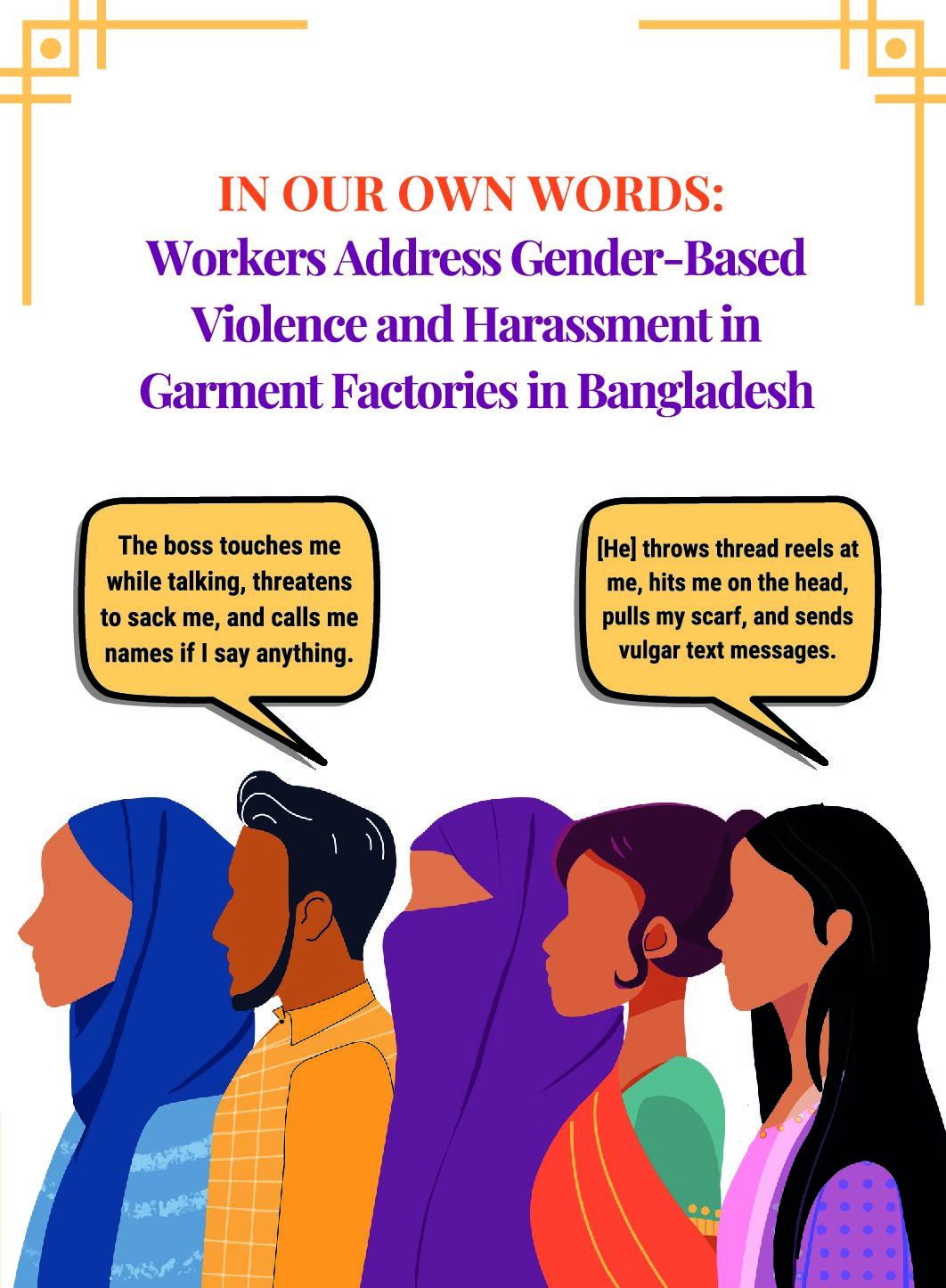
In Our Own Words: Workers Address Gender-Based Violence and Harassment in Garment Factories in Bangladesh
In Bangladesh, 80 percent of women garment workers surveyed in 2019 reported they had experienced or witnessed sexual harassment, molestation or assault, endured extreme verbal abuse or witnessed a factory manager or supervisor abuse and harass other women in the...


